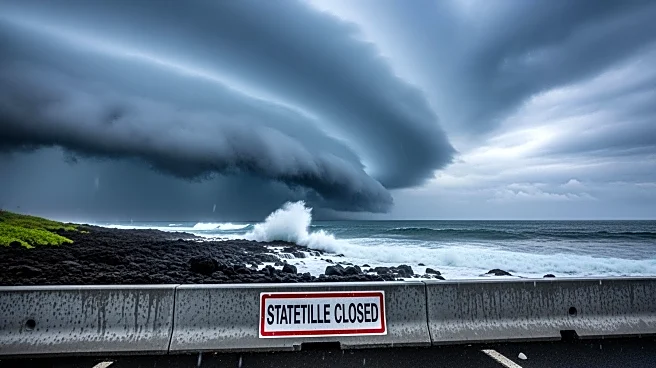Rapid Read • 8 min read
On the 80th anniversary of the atomic bombing of Hiroshima, survivors and officials gathered to commemorate the event and warn of rising nuclear threats. The bombing, which occurred on August 6, 1945, resulted in the immediate deaths of approximately 70,000 people. Survivors, known as hibakusha, continue to advocate for nuclear disarmament, highlighting the ongoing risks posed by unresolved conflicts in regions such as Ukraine and the Middle East. Japanese Prime Minister Shigeru Ishiba emphasized the importance of conveying the reality of atomic bombings to the world. The anniversary was marked by a minute of silence and speeches urging global leaders to prioritize diplomacy over nuclear armament.
AD
The commemoration serves as a stark reminder of the devastating impact of nuclear weapons and the urgent need for disarmament. With nine countries currently possessing nuclear arsenals, the potential for nuclear conflict remains a significant threat to global security. The survivors' advocacy highlights the human cost of nuclear warfare and the importance of pursuing diplomatic solutions to international conflicts. The event underscores the need for increased efforts towards nuclear disarmament and the prevention of future nuclear catastrophes.
Efforts to promote nuclear disarmament are expected to continue, with survivors and advocacy groups pushing for international agreements to reduce nuclear stockpiles. The dwindling number of hibakusha raises concerns about the preservation of living memory and the continued impact of their testimonies. Younger generations, like 12-year-old Shun Sasaki, are stepping up to ensure the legacy and lessons of Hiroshima are not forgotten. The international community faces the challenge of balancing national security interests with the imperative to prevent nuclear proliferation.
The ethical implications of nuclear warfare remain a critical issue, as the world grapples with the moral responsibility of possessing such destructive power. The cultural memory of Hiroshima and Nagasaki continues to influence global attitudes towards nuclear weapons, shaping public opinion and policy. The survivors' stories offer a powerful narrative that challenges the justification of nuclear armament and calls for a reevaluation of military strategies.
AD
More Stories You Might Enjoy












